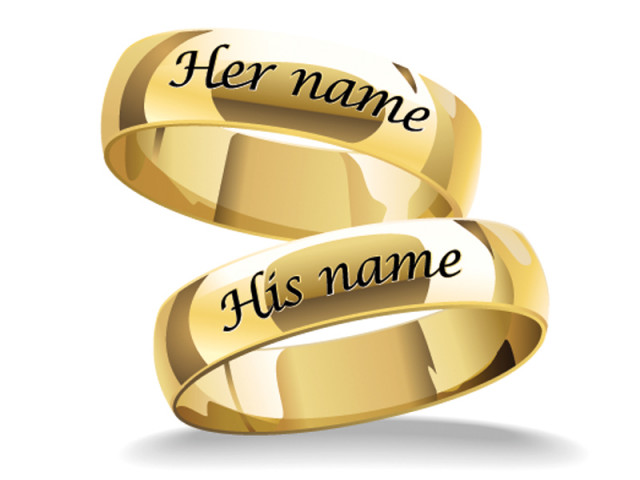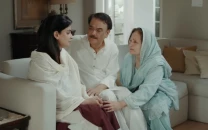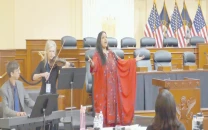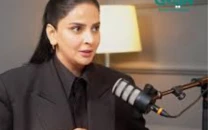Wedding woes: In the name of marriage
Two Pakistani women recount their journey from Miss to Mrs.

Samia Malik
Aday after I signed my nikah papers, I happily texted my family and friends that I was now Samia Malik. The response was, to say the least, unexpectedl! I hadn’t even made it official, but panic-stricken friends already started scolding me, “Are you out of your mind?” Relatives told me not to sacrifice my identity while others interrogated whether my husband was a “male chauvinist” and was forcing this change on me.
I just couldn’t understand this exaggerated response — aren’t Pakistanis known to be inclined towards a patriarchal status quo? Unsure of how to deal with this situation, I asked my husband what he thought. He casually told me, “It will be nice if you change your name, but I leave it up to you.” Although I understood what he meant and appreciated the liberty he gave me, ironically, it also meant that I would solely be responsible for the decision and its consequences.
Before I knew it, everyone around me was offering me their two cents on this subject. A close relative with a religious background decreed that it was not prescribed in Islam: “The Quran and Sunnah preach that a married woman should keep her father’s name as an indication of her lineage. Surely, if changing your name was a good thing, the wives of the Prophet Muhammad (PBUH) would have done so and would have been instructed by him as well.”
A family friend was also quick to push her thoughts to my mother. “What happens if God forbid she gets separated, or something happens to her husband and she has to marry another man? Will she keep changing her surname every time she marries?” she said. I doubted that the name change would be the most pressing issue on my mind were I to undergo such unfavorable situations with the rapidity that she suggested.
A friend of mine with progressive views mused, “Why do men get to keep their father’s name and not women? It just doesn’t make any sense!”
I weighed people’s warnings, my own reasoning and what my husband wanted. But I still couldn’t make my up my mind.
I discussed the option of adding my husband’s family name after my father’s name (Samia Saleem-Malik) just like Angelina Jolie had done for Brad Pitt. But my husband, who is a die-hard cricket fan, hated the idea of identifying me as Samia Saleem-Malik. It reminded him too much of the cricketer ‘Saleem Malik’. And considering Malik had been accused of spot-fixing in his cricketing career, I didn’t want myself associated with it. Two surnames posed a problem professionally as well. Given my newspaper’s policy of taking a by-line of only two names, his name would still not be identified in my published name.
During all this contemplation, I also saw some reason in the arguments against my name change. I am a working woman and a journalist, my articles are published with a particular by-line; changing my by-line would mean that people may stop attributing my work to me. Still, I reasoned, it wasn’t like I would lose my identity completely. I also thought that if a majority of women change their name after marriage, my name change should also not be such a big deal, personally or professionally.
So I finally went for the change — I wanted to know what the difference was!
Making that declaration to my possessive parents and skeptical friends was no less than dropping a bombshell on them. And my younger brother — he still doesn’t like the sound of it.
In the end, I found out that, although Pakistani men don’t force you into changing your name, they certainly feel ‘good’ if you take their name. My husband is happy and likes that sense of belonging.
At the end of the day, what won me over was the thought of a complete family unit. If I’m married to someone, I would like for both of us to have the same last name, along with our children. So we all feel like one big family.
And professionally, it didn’t end up being such a barrier, people eventually got to know me by my new name — Samia Malik!
Sarah Rehan
It was one of the most important days of my life: my nikah was solemnised at a mosque, I signed the papers, murmured qabool hay, qabool hay, qabool hay, and as the proceedings were securely sealed, I heard everyone wish me ‘mubarak’.
As the realisation of my new status slowly dawned on me, I heard someone say “Mrs Rehan”. It was my Nano smiling and calling out to me by my new name. Mrs Rehan — that sounded so awkward and aunty-like — as if she were addressing one of her own friends! I lightly objected but secretly enjoyed being associated in that way with my husband. Now I was Mrs Rehan.
Within a few days of married life, I wanted to make the name change official. First off, I visited the NADRA office to update my name, address and marital status on the most official document — the National Identity Card. As I waited in queue, I heard someone call out “Sarah Rehan”. It took me a minute to realise that they were calling me; it felt strange and different. That was the moment I realised I was renouncing the name that I had signed across at so many places all my life, the name that I had been born with. I clumsily signed ‘Sarah Rehan’ on a piece of paper. Then, I quickly practiced the new signature a few times and submitted the sample.
But the name change was not just a sentimental process; updating and revising important documents like driving license, club membership cards, bank credit/debit cards, and academic/professional certificates was a tedious and time-consuming process on its own. It was also a testing transition for me as a wife, already undergoing a host of changes.
Some women continue to stick to their maiden names after marriage to maintain their academic, professional and social identity as it existed prior to their marriage. My husband supported whatever name choice made me feel more comfortable. However, the charm of being attached to a new person and a new name — after bearing the name of the family that raised me — is warm and unique. I knew what I wanted. I welcomed the name change.
I used to wonder why people said that a new life starts after one gets married — I have now experienced the feeling. It is a new name, a new family — a new existence altogether. Among the tirade of tricky transitions that happen from ‘single’ to ‘married’, the name change is a small but significant transition. I moved to a new city, a new home and got blessed with new parents. My surroundings changed altogether and the change was not just that alone, I was now sharing my life with someone. Amidst these changes, I would have felt incomplete had I not associated with my husband fully by adopting his name. This change signifies the unity of the bond that I share with him. It gives me the strength of a companion who stands with me every moment. It reflects the newness that I have undergone with the marriage. Now we are collectively addressed as Mr and Mrs Rehan. My new name makes me feel securely attached to my life partner — and that is a great feeling to cherish and treasure!
Published in The Express Tribune, Ms T, July 22nd, 2012.



















COMMENTS
Comments are moderated and generally will be posted if they are on-topic and not abusive.
For more information, please see our Comments FAQ